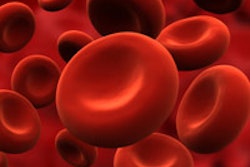White blood cells play a role in activating cancer cells and facilitating their spread to secondary tumors, according to a new study in the Journal of Clinical Investigation (July 1, 2013).
Researchers from McGill University and the University of Calgary used both cultured cells and mouse models of cancer to show there is a relationship between infection and metastasis.
Web-like neutrophil extracellular traps (NETs) are produced by white blood cells in response to an infection and normally trap and kill invading pathogens, such as bacteria, the researchers noted. However, they found that in the case of animals with cancer, NETs also trapped circulating cancer cells. Instead of killing the cancer cells, the webs activated the cancer cells and made the animals more likely to develop secondary tumors.
The researchers went one step further and demonstrated that the neutrophil web can be broken down by certain medication. Furthermore, in mice with cancer, markedly less tumor growth and metastasis occurred after the medication was administered. This finding was true for a number of different cancer types, suggesting that neutrophil webs may be a common pathway involved in the spread of cancer.



















